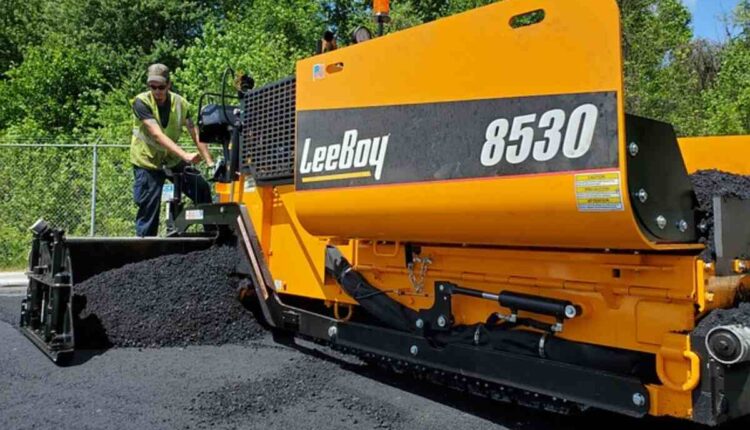Asphalt pavements are increasingly popular choices for roadway surfaces due to their cost-efficiency, aesthetic appeal, and easy upkeep requirements. Furthermore, asphalt is also a viable choice for repaving existing driveways or parking lots. Choose the best Asphalt Paving Contractors Riverside.
Estimating the costs associated with asphalt paving projects can be complex. To make it simpler for you, we’ve put together our free asphalt paving cost estimator tool.
Cost of Materials
Asphalt paving materials cost anywhere between $40 to $80 per ton depending on the scope of a project, with industry-standard density (145 pounds per cubic foot) making calculating how many tons is necessarily easy. Once known, contractors can then provide an accurate estimation.
Asphalt used in paving projects is typically manufactured at specialized plants that utilize energy-efficient processes that minimize emissions and fuel consumption while being highly sustainable – the asphalt can be recycled into new applications, significantly reducing waste. Specialty mixes may also be explicitly created tailored to performance characteristics.
Asphalt paving is an economical and quick solution for homeowners, making it an attractive option when living close to busy roads. Unfortunately, heavy vehicles can leave cracks behind that eventually damage their surface over time, necessitating additional options in terms of paving options. To stay safe when living close to heavy vehicle traffic and reduce cracking over time, asphalt should not be chosen for residential driveways near busy roads.
Gravel, brick, and cobblestone are also good choices; however, these materials tend to be more costly and time-consuming to install than asphalt – increasing overall costs and vulnerability to environmental conditions such as rain, which may lead to erosion and flooding. Asphalt provides strong and durable protection that lasts up to 30 years when properly maintained.
Cost of Labor
Labor costs associated with preparing and installing asphalt surfaces will also factor into the total paving cost, including time spent working as well as any extra expenses related to their job – for instance, it is common practice for contractors to charge additional fees for cleanup and disposal services of existing material.
Any customizations or add-ons required will increase paving costs accordingly, such as adding color to asphalt. While adding these features may increase expenses, their aesthetic benefits can drive up home values while offering safer and more enjoyable experiences for users of driveways.
Another critical factor affecting paving costs is the amount of material required for delivery to a project site, which will depend on both type and distance from the manufacturing plant. Asphalt contractors who facilitate their manufacturing process with their equipment tend to keep material costs at bay when compared with those purchasing from outside sources.
There are various kinds of asphalt available for driveways. Hot mix asphalt is one of the more economical choices and frequently contains recycled materials; its flexibility helps prevent damage caused by fluctuating pressure from motor vehicles. Other materials to consider for driveways include gravel and concrete.
Cost of Equipment
Asphalt paving equipment costs are another significant component of project costs. Pavers are expensive machines that must be regularly serviced to function optimally during paving processes; otherwise, they could break down and lead to delays and an unhappy customer; furthermore, ineffective paving work could cause less successful jobs in future contracts.
Asphalt paving involves mixing aggregates, binders, and fillers – crushed rock, sand, or gravel being the aggregates – with binder binders such as bitumen. New technologies that use renewable materials as binder options are being developed.
Once the mixture has been created, it is then placed at the construction site and compacted using special machinery. Temperature and type of machinery play an essential role in how well asphalt packs; an unattractive, bumpy finished product would result from improper compaction.
Calculating how much asphalt a project requires involves inputting information about its length, width, and depth – then using a calculator that converts this to feet before multiplying by 145 (the industry standard density factor for asphalt density), then dividing that figure by 2,000 to arrive at an approximate figure in pounds per ton of asphalt.
Cost of Site Preparation
Site preparation is an integral step that has an enormous influence on the total cost of asphalt paving projects, including the removal of existing material and prepping the ground for new construction. Although this step can be costly and time-consuming, its purpose is crucial – to ensure a quality finished product. During this phase, contractors may discover obstructions that must be cleared away or relocated.
Another factor influencing asphalt pricing is thickness: as surfaces get thicker, so does their cost. A typical home driveway might need only 2 inches, while larger commercial parking lots might need 4 or 5 inches of asphalt. Furthermore, asphalt mixes may contain recycled materials, while others use different technologies to bind aggregates together – all these factors come together to determine its price tag.
A professional asphalt contractor should take into account the type of surface they’re building before suggesting an appropriate mix and thickness for each application. They may also offer advice regarding which vehicles may drive over it and provide suggestions for optimal thickness settings for each. To keep costs at a minimum and maintain longevity of surfaces long term. Final project costs depend on size and complexity as well as duration.

